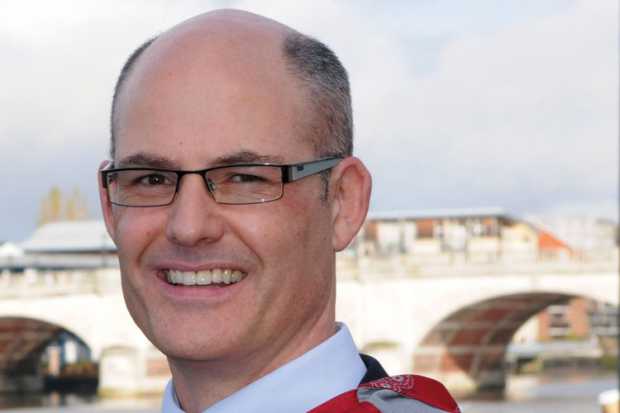
Physiology News Magazine
What does the future hold for the teaching of physiology in UK Higher Education Institutions?
Seeking meaning in a constantly shifting landscape
Features
What does the future hold for the teaching of physiology in UK Higher Education Institutions?
Seeking meaning in a constantly shifting landscape
Features
https://doi.org/10.36866/pn.111.36
‘There is no feeling in life as rewarding as successfully imparting knowledge to others’
—Quote from Nick Hillman, Director of the Higher Education Policy Institute, in the foreword to The Physiological Society’s ‘Recognising Teachers in the Life Sciences’ 2015 publication.
|
|
|
|
A Theme Leads’ report
We are experiencing a period of tremendous turbulence in the running of our degree programmes in UK Higher Education Institutions (HEIs). Some of the recent changes that we have had to urgently address are:
- The advent of the Teaching Excellence Framework (TEF) Currently this is deployed at the institutional level but will soon to be filtered down to us at course and subject level too.
- The removal of the government cap on student numbers The expansion of provision and uptake of higher education continues apace (Scott, 1995). This has a disproportionate impact on laboratory-based disciplines such as physiology, because running practical sessions is a very expensive and time-consuming business, quite apart from
the time one then needs to set aside for assessing such work. - Students being largely responsible for funding their own education This has led to profound changes in the relationship between institutions and their students. This in turn has meant that courses now put much more emphasis on the future employability prospects of our students with employability skills often being ‘embedded’ within our curricula. This is a particular problem for the teaching of physiology, as many students do not realise the range and variety of career paths a degree in physiology opens up to them.
- Massive Open Online Courses (MOOCS) and e-mediated learning What is the role of the traditional, didactic lecture in a large lecture hall in this brave new world? At a very practical level there is a current debate about whether or not we should video or audio record our lectures for students to download at their convenience. If our lecture halls are half empty, how do we engender learning communities within our institutions?
- University league tables and the National Student Survey (NSS) As a consequence of trying to boost league table rankings and NSS scores, there has been a shift towards performance management of academic staff. Universities thus become more like businesses with burgeoning numbers of university administrators employed to address league table, TEF and NSS metrics.

Much of this activity is unrecognisable to those of us who started off our careers as laboratory-based scientists interested primarily in research. However, with the much heralded re-emphasis of the importance of learning and teaching in UK HEIs (Willetts, 2013), academics are having to think a bit more deeply about their pedagogic practice and their roles as physiology educators. In making the dispositional shift from a research focus to one involving teaching and learning, academics have been assisted by the development of the UK Professional Standards Framework by the Higher Education Academy (now part of Advance HE) and the various types of Fellowships aligned to different levels of the Framework. This professionalisation of the academic workforce alongside the increasingly prevalent requirement for university lecturers to obtain a teaching qualification makes the role of teaching and learning in UK HEIs more explicit. Indeed, our institutions must make an annual return to the Higher Education Statistics Agency (HESA) on academic staff teaching qualifications.
We, as Education Theme Leads, would argue that the current environment represents a period of unprecedented transition where careers may be more fluid, flexible and generally amenable to formal career development and progression. Academics in the future can present themselves as physiologists in a number of different ways reflecting their expertise, interests and the stage of their career. For instance, many academics seek to communicate physiology to the wider community via Outreach Activities, Citizen Science projects, production and dissemination of e-learning tools and Public Engagement roles. This broadening out of what it means to be a physiologist can act as a source of inspiration and renewal to us all as well as to our learners.
The Physiological Society via the Education Theme has played a pivotal role in disseminating and translating many of these developments to the community. In particular, in aiming to help academics reframe their careers in this multi-dimensional and fragmented world, The Physiological Society has produced materials such as ‘Recognising Teachers in the Life Sciences’. This publication sought to ‘Raise the status and valuation of teaching in careers in Higher Education ’ (Harris, 2015).
Equally pertinent is the fact that there will be a session at the forthcoming Europhysiology Conference (14–16 September 2018 at the QEII Centre, London) devoted to Innovations in Physiology Education organised by Sarah Hall from Cardiff University, which is part of a move to integrate the physiology education theme more fully with the other research-orientated themes at Physiological Society conferences in the future.
Consequently, it is a fascinating time to be a physiology educator. There are many avenues open to us to explore and develop our careers. The Physiological Society, alongside others, has devoted considerable time and energy to supporting academics in the pedagogic elements of their practice, funding Education Theme workshops, providing the David Jordan teaching grants which give up to £10,000 to academics to conduct a pedagogical project or develop an educational resource and promoting teaching as a way to further one’s career. Working with and for students is now much more the explicit focus of the activity of many in our universities. We should be proud of, and excited by, the role we are playing in moulding and enthusing the next generation of physiologists as well as informing wider society. After all, if there is one thing that physiologists are good at it is adapting to environmental stresses and integrating new ideas, so we are all very well placed to thrive in the current, shifting HE landscape!
References
Harris J (2015) cited in Recognising Teachers in the Life Sciences. Physiological Society.
Scott P (1995). The meanings of mass higher education. Buckingham: Society for Research into Higher Education.
Willetts D (2013). Robbins Revisited: Bigger and Better Higher Education. Social Market Foundation.



